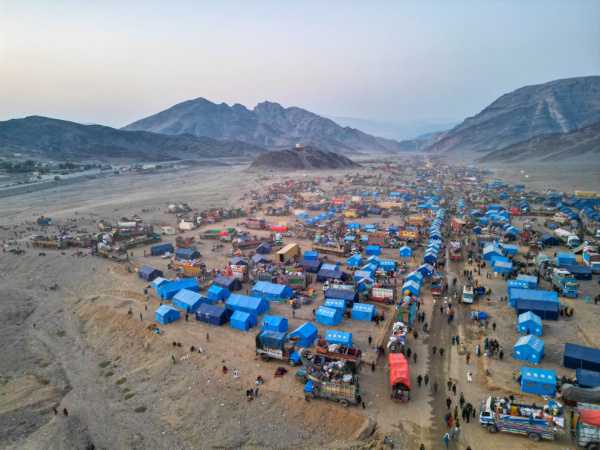Pakistan’s Eviction of Afghan Migrants Risks Backfiring
By Sudha Ramachandran
December 5, 2023
Pakistan has issued an ultimatum to illegal migrants to leave the country or face detention and deportation. It says that national security concerns underlie its decision; it alleged that Afghan migrants carried out most of the suicide attacks in Pakistan over the past year. However, its forcible deportation of migrants is unlikely to secure it from terror attacks as deportees could turn their anger against Pakistan. A rise in militant recruitment and attacks can be expected. Pakistan’s attempt to secure itself by driving out migrants will deepen its insecurity.

Pakistan to repatriate Afghan refugees
By Sudha Ramachandran
February 9, 2017, the CACI Analyst
Pakistan’s government has set March 31 as the deadline for all Afghan refugees living on its soil to leave the country or face deportation. Although it is not a signatory to the 1951 Refugee Convention or the 1967 Protocol, Pakistan has been a generous host to Afghan refugees, hosting up to 5 million Afghans at a time. Neither did Pakistan force them in the past to return to Afghanistan. This seems to have changed. For many refugees, returning to Afghanistan will not be a happy homecoming as the security and economic situation in the country remain dire.
Deeper Afghanistan-India cooperation must not isolate Pakistan
By Sudha Ramachandran
December 15th, 2016, The CACI Analyst
India-Afghanistan relations have warmed considerably in recent months. During Afghan President Ashraf Ghani’s visit to Delhi in mid-September, the two countries deepened their defense and security co-operation and signed an extradition treaty. India also pledged US$ 1 billion towards capacity building in Afghanistan. A few days later, when the Lashkar-e-Taiba, a terrorist group with close links to Pakistan’s Inter-Services Intelligence (ISI), attacked an Indian Army base at Uri in Jammu and Kashmir, Afghanistan came out strongly in support of India. The renewed Delhi-Kabul bonding is likely to have stirred Islamabad’s anxieties. ISI and its terrorist protégés could step up attacks in Afghanistan and India in the coming months.




